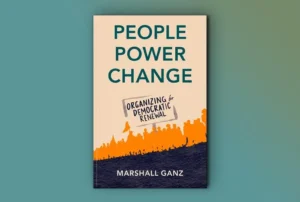June 23, 2014, Mainebiz and the Lewiston-Auburn Sun Journal
Maine Gov. Paul LePage said he will consider restarting a nonprofit bond program he essentially shut down three years ago that left many nonprofits without more affordable financing options, report two of the state’s publications.
The governor’s spokeswoman told the Sun Journal that he was willing to start the program again last fall, despite the fact that he never explicitly indicated that. LePage ended the nonprofit bond program in 2011 after he refused to sign a bond package for eight colleges, hospitals, and other nonprofits. At the time, he said he was concerned about the impact a loan default could have on Maine’s bond rating.
That decision left many nonprofits without the lower-interest financing that could have helped them save millions of dollars. One hospital alone was expected to pay an extra $42 million on a loan to build a 192-bed hospital because it was unable to utilize the program.
The executive director of the Maine Health and Higher Education Facilities Authority, a quasi-state agency which runs the nonprofit bond program, told the papers that he hadn’t been informed of LePage’s decision to reconsider the program, but that he’s happy the program may start up again.
Nonprofit advocates were pleased and surprised by the news, according to MaineBiz. They said the governor made it clear three years ago that he was opposed to the program and they’d seen no indication that he’d changed his mind. LePage’s office said he would be willing to restart the program once a number of hospital bonds had been paid off, but many advocates said they had not been informed directly of the governor’s change of heart.
Sign up for our free newsletters
Subscribe to NPQ's newsletters to have our top stories delivered directly to your inbox.
By signing up, you agree to our privacy policy and terms of use, and to receive messages from NPQ and our partners.
Over the past few years, the governor talked only about signing specific voter-approved state bonds and an infrastructure bond package he favored. MainBiz reported that there was no mention of the 20-year-old bond program for nonprofits.
For 20 years, Maine nonprofits could pool their major projects with help from the authority and issue tax-exempt bonds together. That gave them lower interest rates and better loan terms than they could have gotten by seeking financing on their own. Unlike bonds for infrastructure or other public projects, voters did not have to approve them because no taxpayer money was involved.
In early 2011, the authority sent its bond paperwork to LePage for his signature. IRS rules require all tax-exempt revenue bonds be approved by the highest elected official in the jurisdiction. Over the previous two decades, Republican, Democratic and independent governors had all signed without much comment, and it had become routine. But LePage said no.
“His refusal stunned Maine’s nonprofit community, which had come to rely on the program for less costly, easy financing. Eight hospitals, colleges and other nonprofits were in that pool and had expected to get $31 million in financing for projects already planned. Others, including MaineGeneral Medical Center in Augusta and Thomas College in Waterville, were working on projects and planned to seek financing in later pools,” the Sun Journal article said.
The state has no legal obligation to pay if a nonprofit defaults, but it does have a “moral obligation.” If abandoned and left unpaid, such a loan could potentially hurt a state’s credit rating, says the article, although proponents say safeguards are in place to prevent that, including at least two multimillion-dollar reserve accounts in Maine.
LePage’s office has said no new bond applications had appeared before him in the past year, although nonprofit leaders told the paper that it takes money and time to put together an application, and they haven’t wanted to waste resources on a package “doomed to fail.”
Maine’s State Treasurer told the Sun Journal that she’s pleased the pool bond program may get started again, but she’s concerned that the governor is saying only that he will “consider” the proposals, which she said was “not very secure. That’s not a promise.” —Larry Kaplan












